





Tuti Momo se desarrolló durante tres meses en 2015 en el Teatro Municipal do Porto (Teatro Rivoli) y por las calles circundantes. El proyecto consistió en una instalación inmersiva y de larga duración, compuesta por personajes míticos y abstractos cuyas interacciones improvisadas, guiadas por el comportamiento, invitaban a transeúntes, invitados y colaboradores a un espacio compartido de performance colectiva y reflexión.
En lugar de presentar identidades fijas, Tuti Momo abordó la identidad como una constelación de roles en flujo, movilizados a través del espectáculo y el encuentro social. Desarrollado a través de la performance, el video, la fotografía y la escultura, el proyecto marcó un cambio crucial en la práctica de la artista hacia formatos inmersivos y comprometidos socialmente.
Los workshops fueron fundamentales para el desarrollo de Tuti Momo. En busca de personajes y participantes para el proyecto, la artista dirigió sesiones con grupos de diversas edades y orígenes, explorando el lenguaje corporal, el comportamiento y la encarnación.
Estos workshops funcionaron como una herramienta creativa clave, permitiendo que los personajes surgieran a través de la exploración colectiva en lugar de roles predefinidos. Los participantes se convirtieron en contribuyentes activos del universo en expansión del proyecto, dando forma tanto a su narrativa como a su presencia física.

El proyecto se inauguro con una procesión pública que contó con 47 Crystal Beings, las 5 Old Ladies y el Niña Interior, cruzando desde el complejo Mota Galiza a través de los jardines del Palacio de Cristal hasta la Plaza D. João IV. Los disfraces se rasgaron al final y el material fue recogido de nuevo, el primer acto hacia la creación del Monumento Invisible.
En los días siguientes, este Monumento se desarrolló de manera ritual — esferas manipuladas por los participantes se combinaban en una única forma más grande. Su construcción se convirtió en una performance pública visible, disolviendo las fronteras entre el intérprete y el espectador.
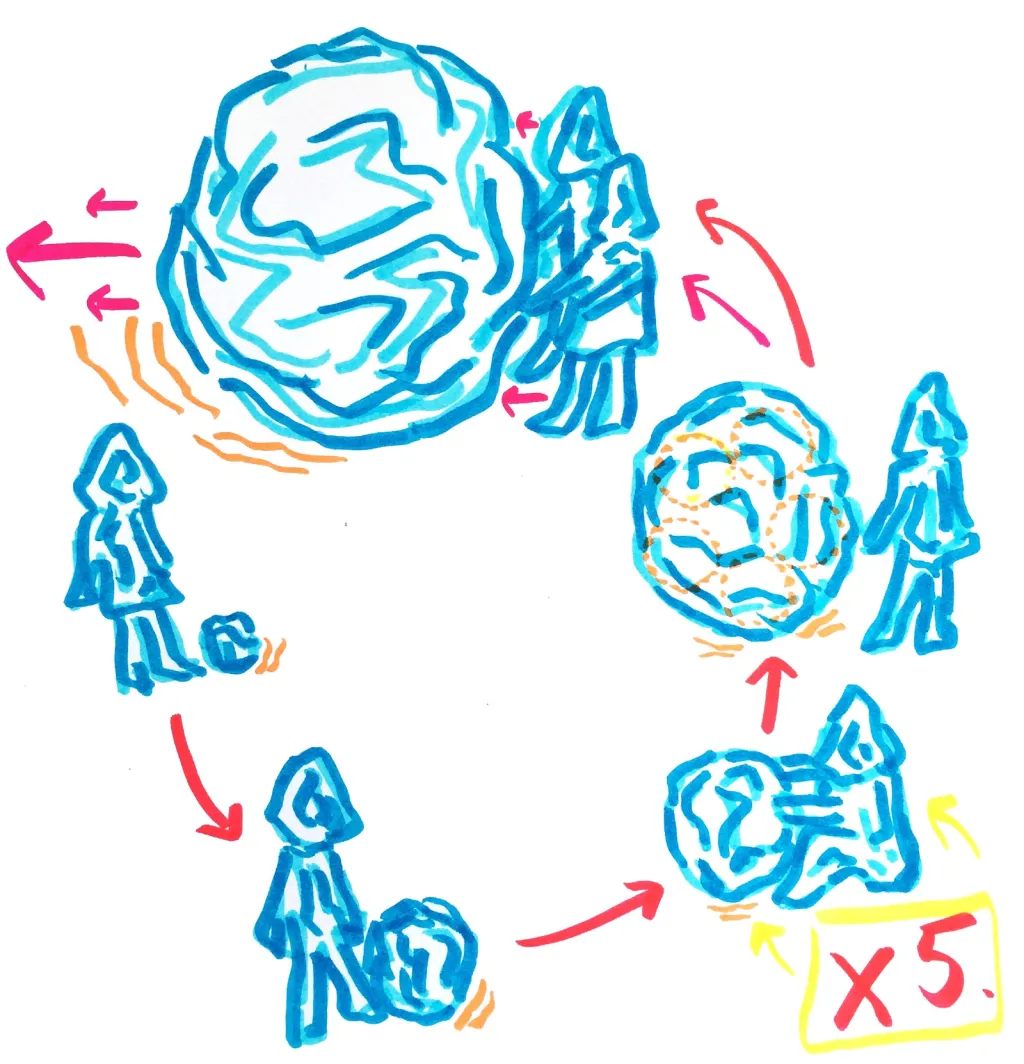
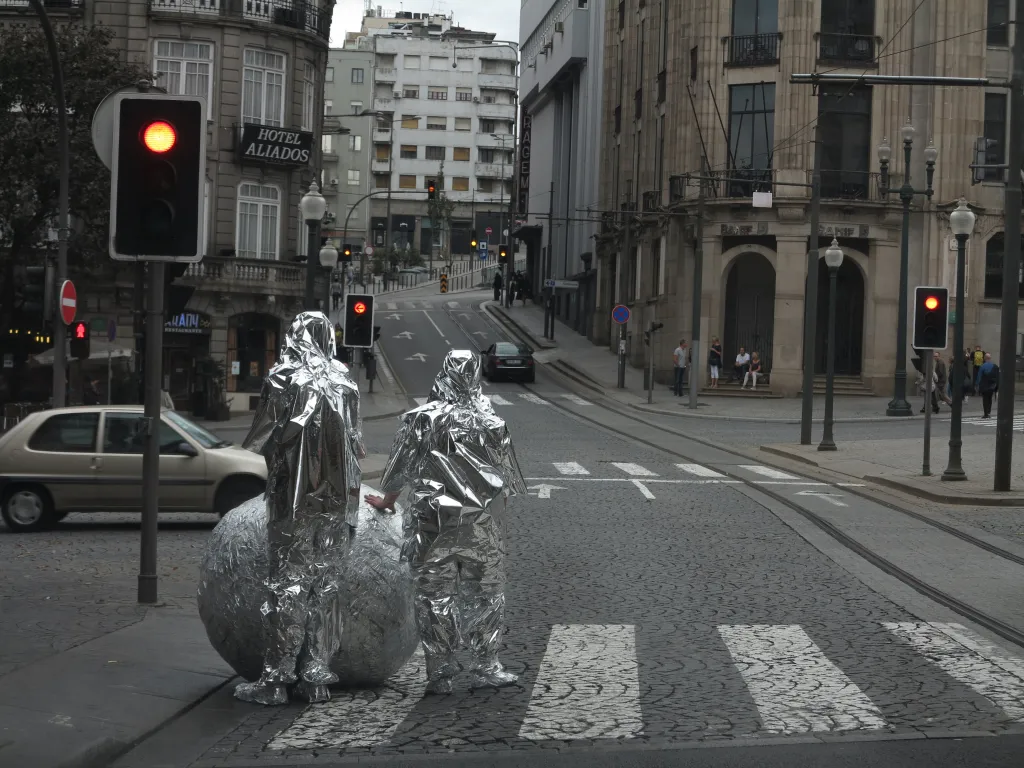




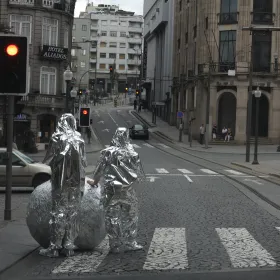




Una experiencia participativa sobre el comportamiento humano y los arquetipos dominantes de la psique local, esta fase transformó el vestíbulo del teatro en un entorno inmersivo activado mediante una performance continua.
Se instalaron múltiples obras y materiales a lo largo del vestíbulo y los pasillos del tercer piso, con performances que tenían lugar dos a tres veces por semana, a veces extendiéndose fuera del edificio hacia el espacio público. Cada semana, los intérpretes transformaban y ampliaban la instalación, permitiendo que evolucionara continuamente.
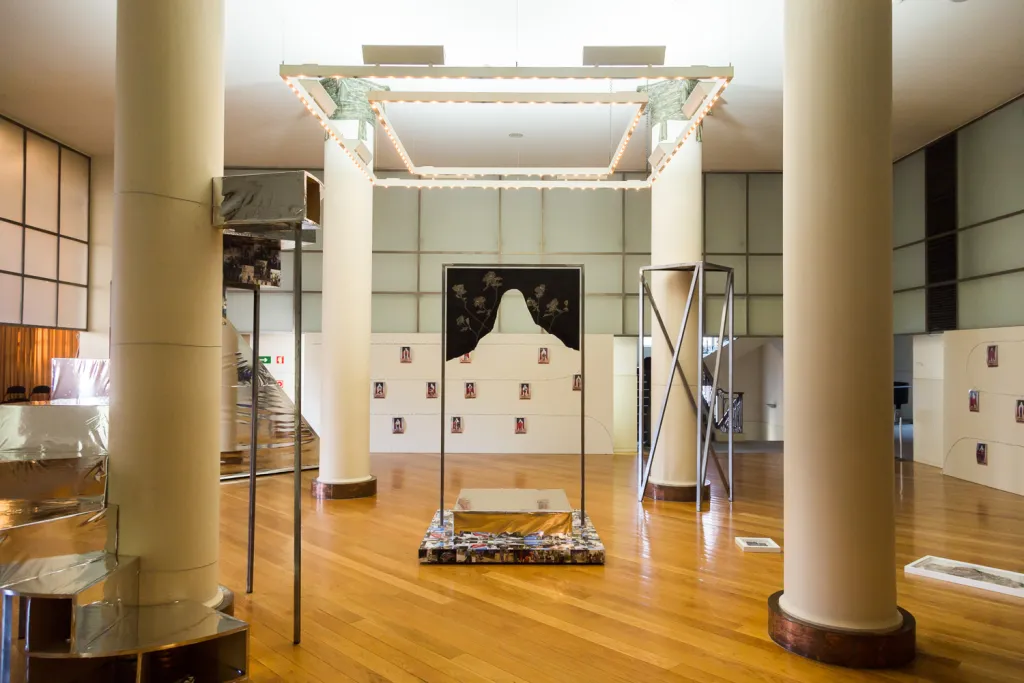
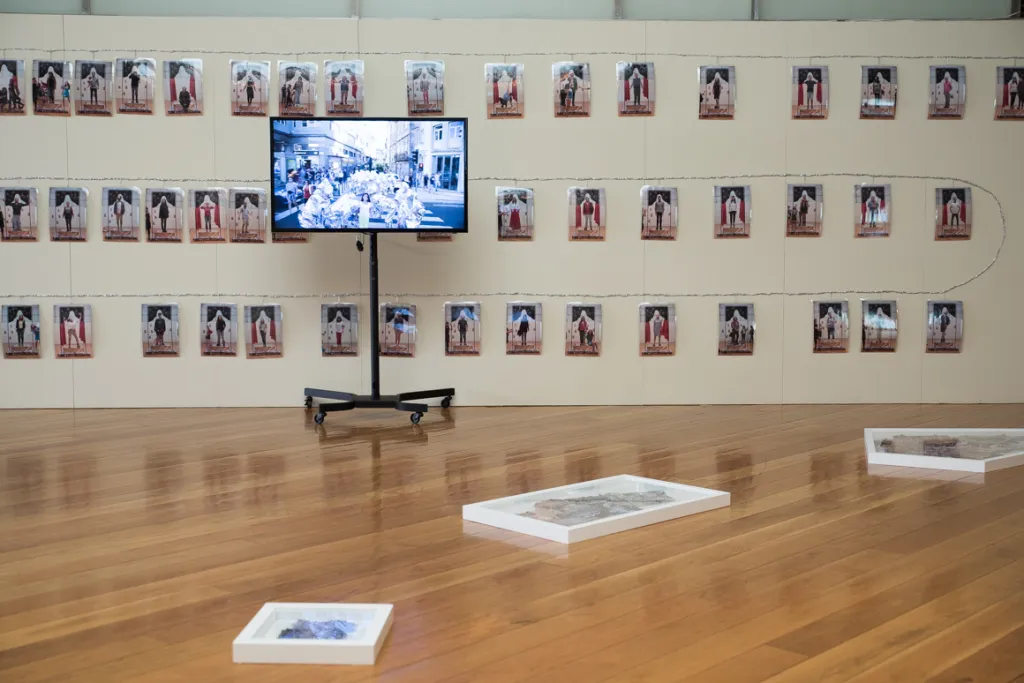
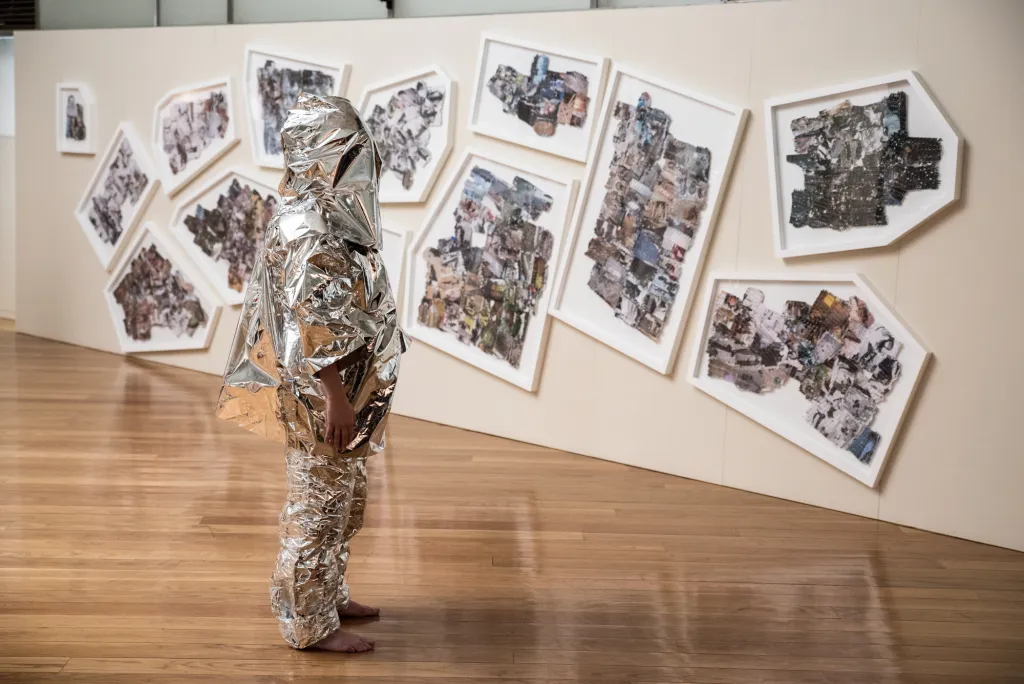
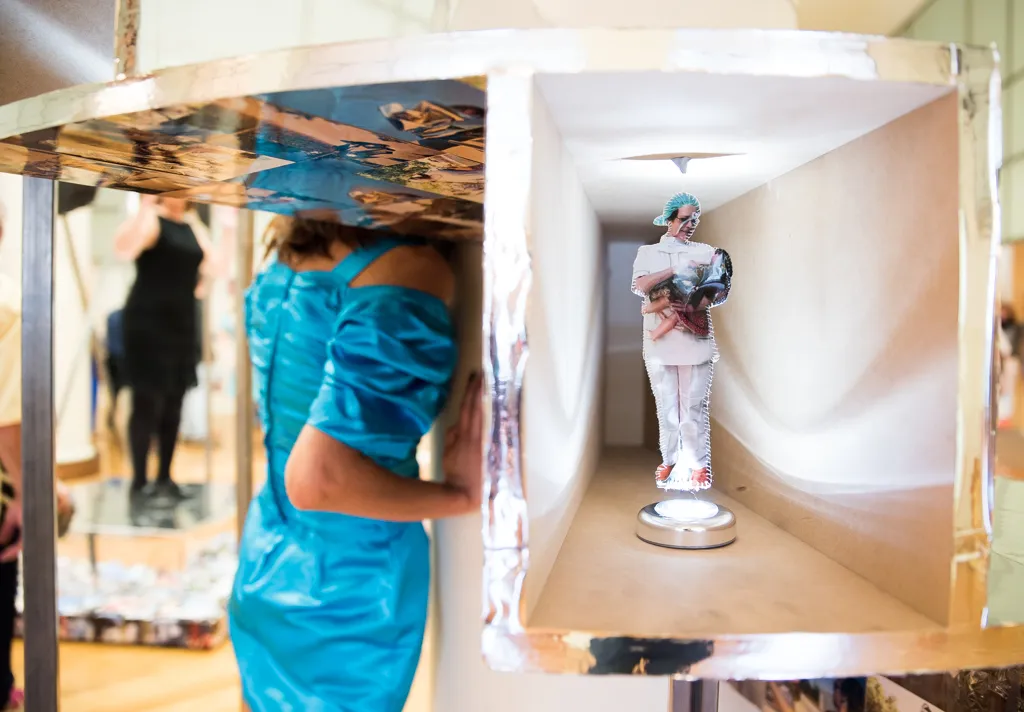


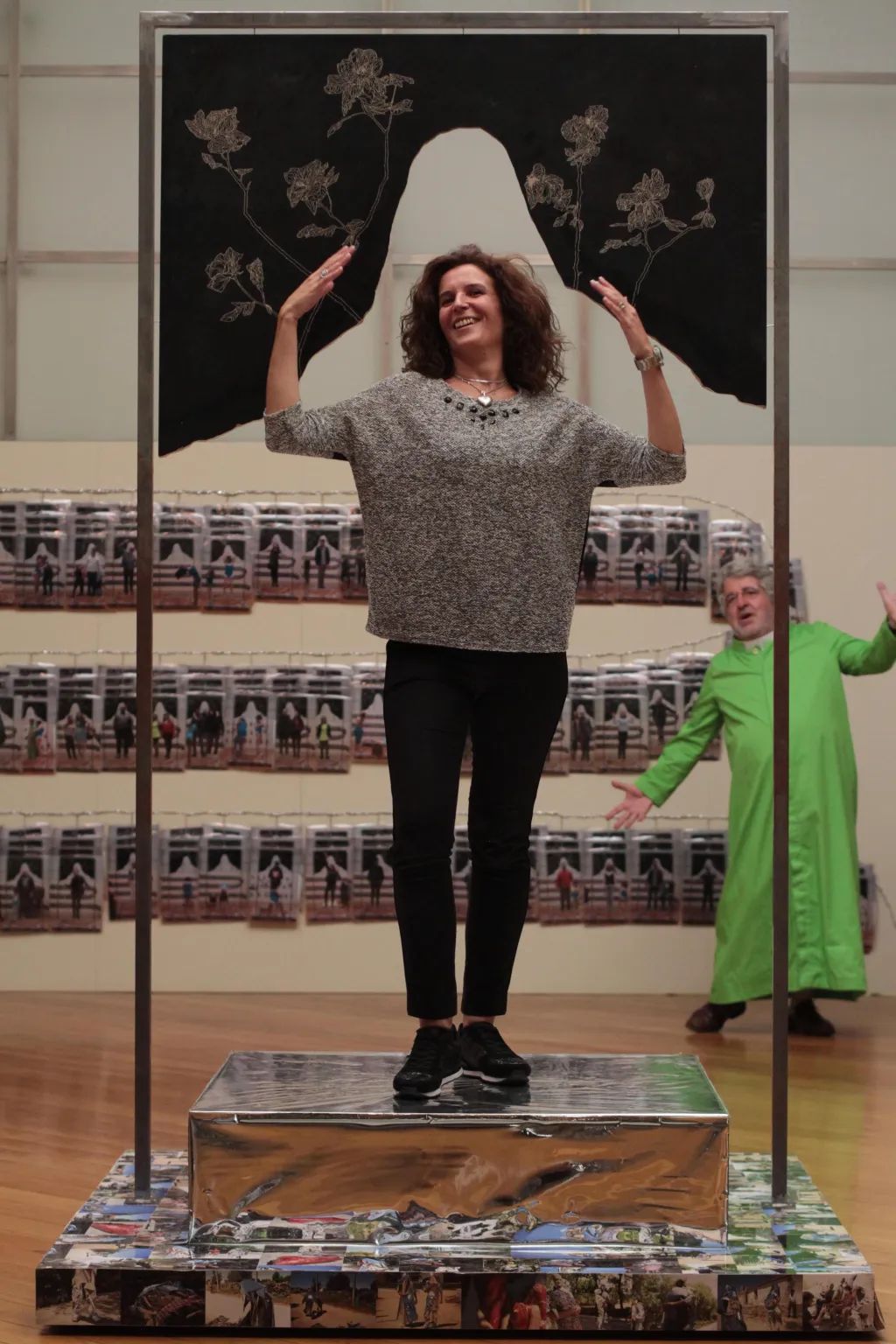
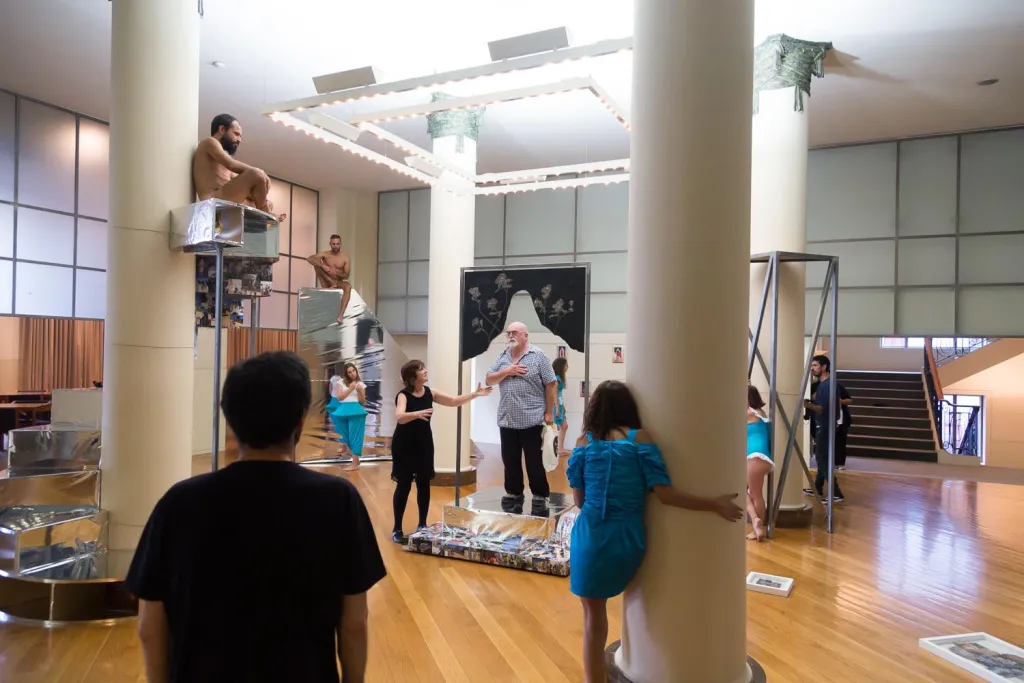
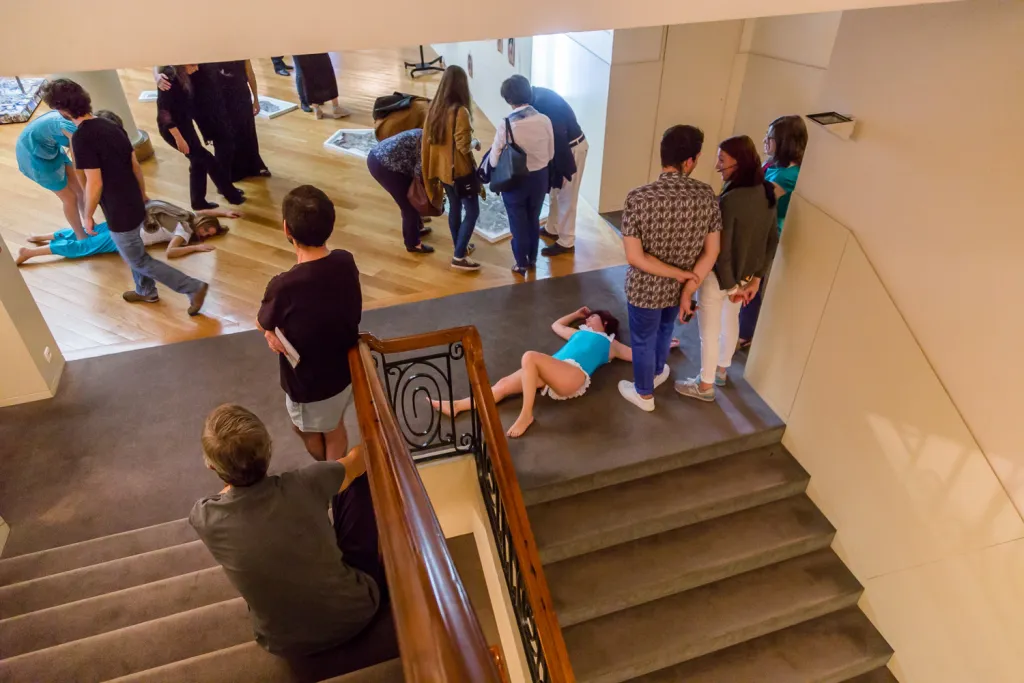
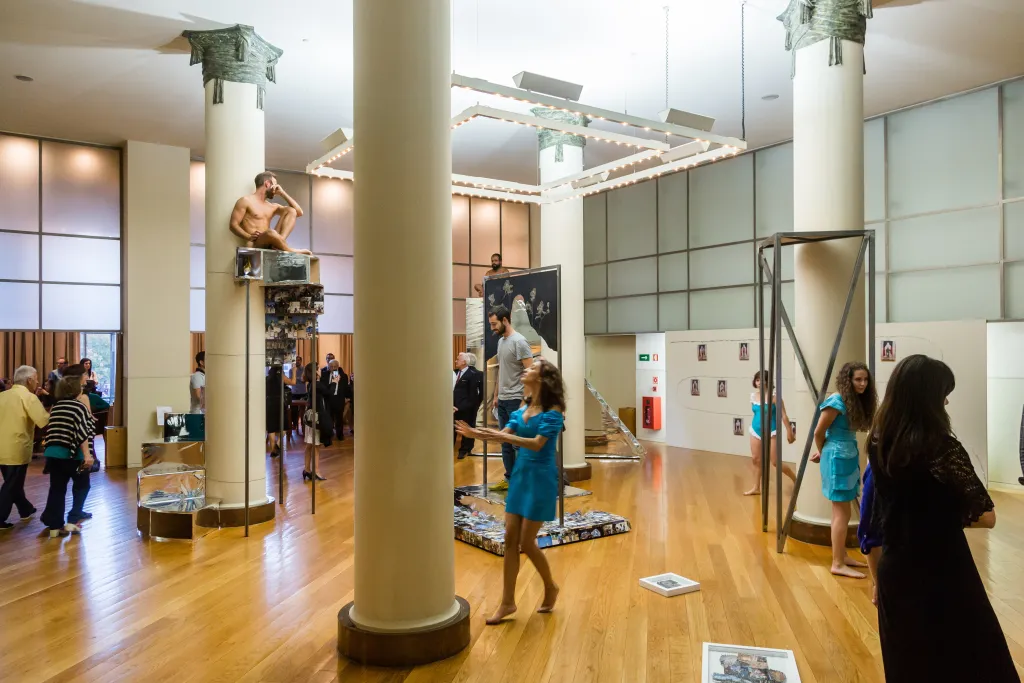
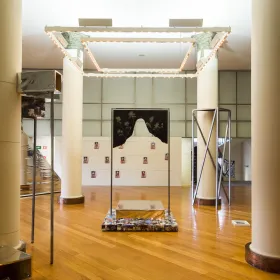
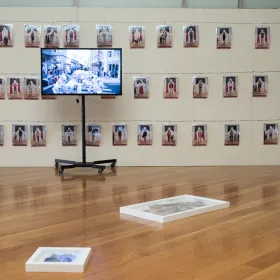
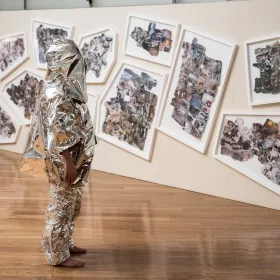

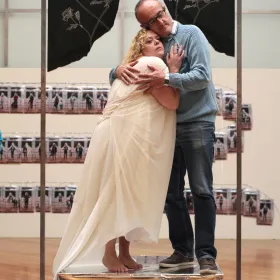

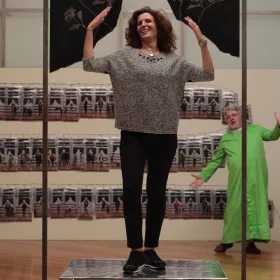
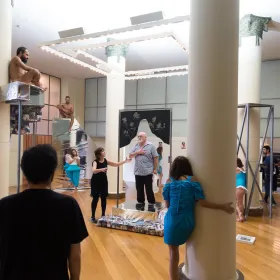
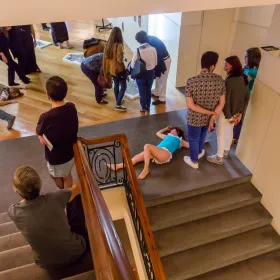
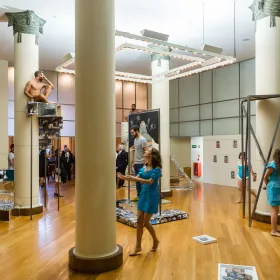
En Tuti Momo, los personajes funcionan como hiper-personas construidas a partir de rasgos de personalidad y códigos de comportamiento presentados durante los workshops.
El título de la obra se refiere a Tuti Momo, una figura de culto real asociada con la longevidad extrema, la reverencia y la creencia. Alrededor de esta presencia central surge un universo de personajes, cada uno encarnando funciones sociales particulares: cuidadores, timadores, jóvenes, neuróticos, pacificadores, comerciantes, observadores. Estas figuras no operan psicológicamente, sino relacionalmente — definidas por cómo circulan, interactúan y son percibidas por los demás.
En lugar de representar identidades individuales, los personajes de Tuti Momo exponen cómo la sociedad asigna significado, autoridad y expectativas a ciertas personalidades. A medida que intérpretes y visitantes se mueven entre roles —a veces conscientemente, a veces inconscientemente—, la obra revela la identidad como un espacio negociado moldeado por la proyección, el ritual y la creencia colectiva.

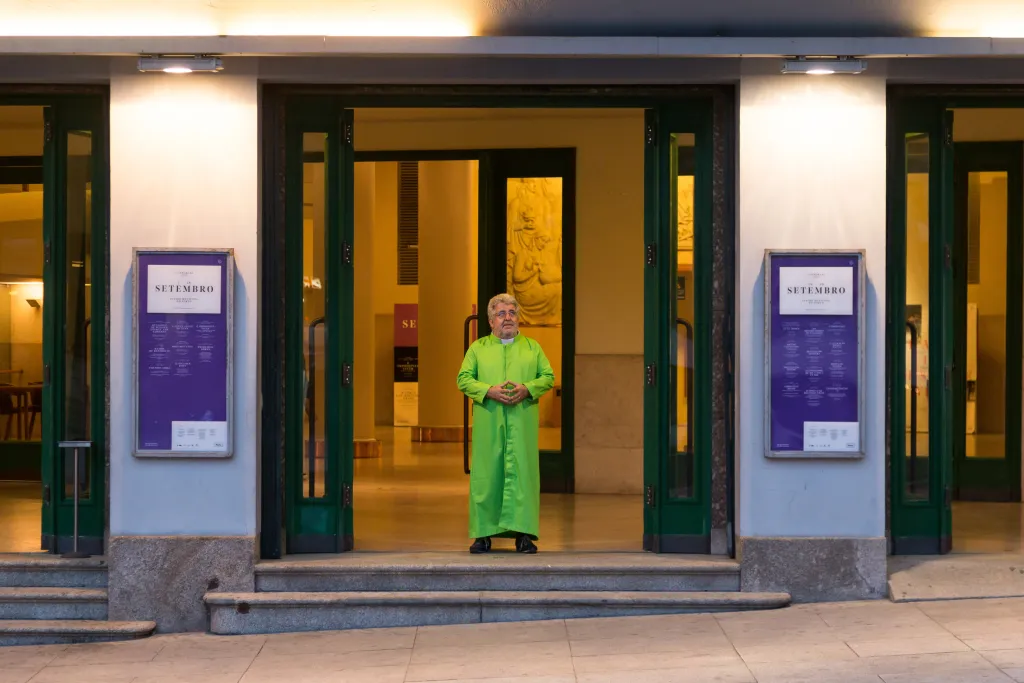




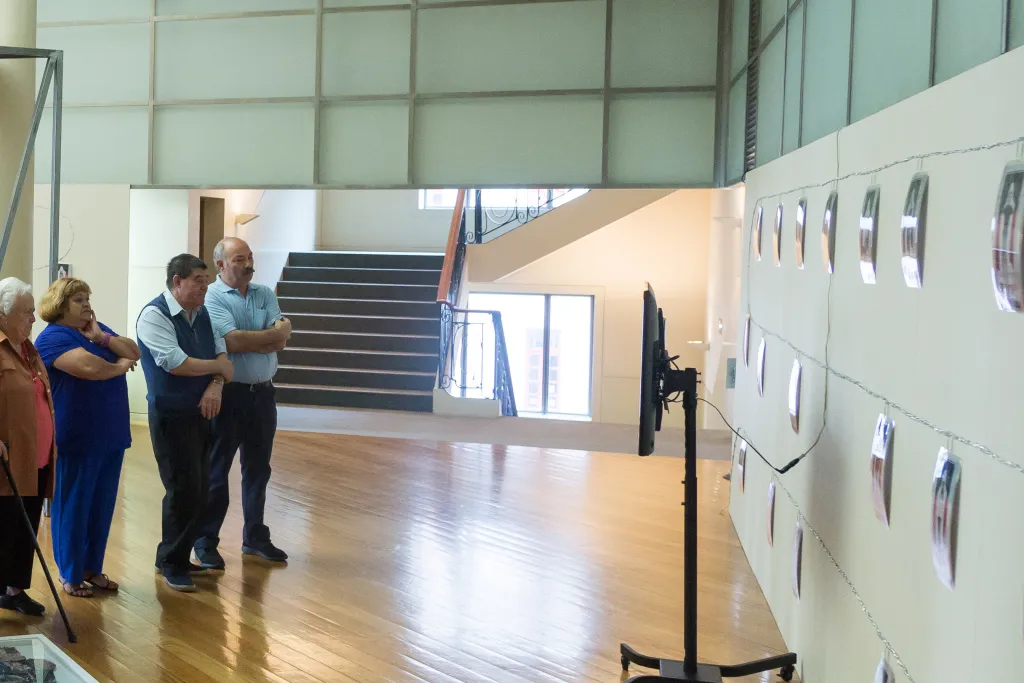




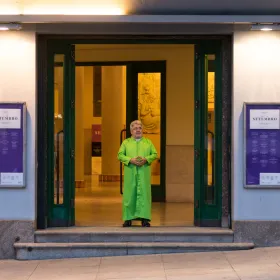




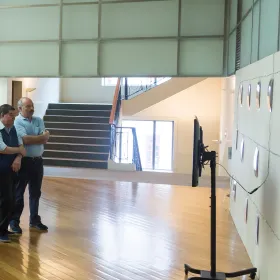



En el corazón de Tuti Momo se encuentra una economía ideológica construida alrededor de la idea de la creencia. El proyecto reimagina la figura de Tuti Momo no como una persona, sino como un sistema de creencias, donde la devoción, la atención y la interacción se convierten en recursos convertibles —metafóricamente llamados almas.
Un altar colocado dentro del espacio teatral funcionaba como el núcleo conceptual del proyecto. Ciertos personajes —especialmente las The Widows — tenían la tarea de recolectar almas tanto dentro como fuera del lugar. Estas ofrendas se depositaban en el altar, manteniendo la presencia ideológica de Tuti Momo y colapsando las distinciones entre la creencia privada y el comportamiento público.
¿Quién gana más almas?
En la última iteración (finissage), todos los personajes interactuaron dentro de una escena que parecía un mercado. Circulando por el espacio, se acercaban unos a otros para vender y comprar "almas", mientras que se colocaban ofrendas en un altar dedicado a Tuti Momo. Un personaje, Mind Zero, cogió una ofrenda y empezó a morderla, masticarla y escupirla — un gesto que condensó la transacción, el consumo y el rechazo en un solo acto.
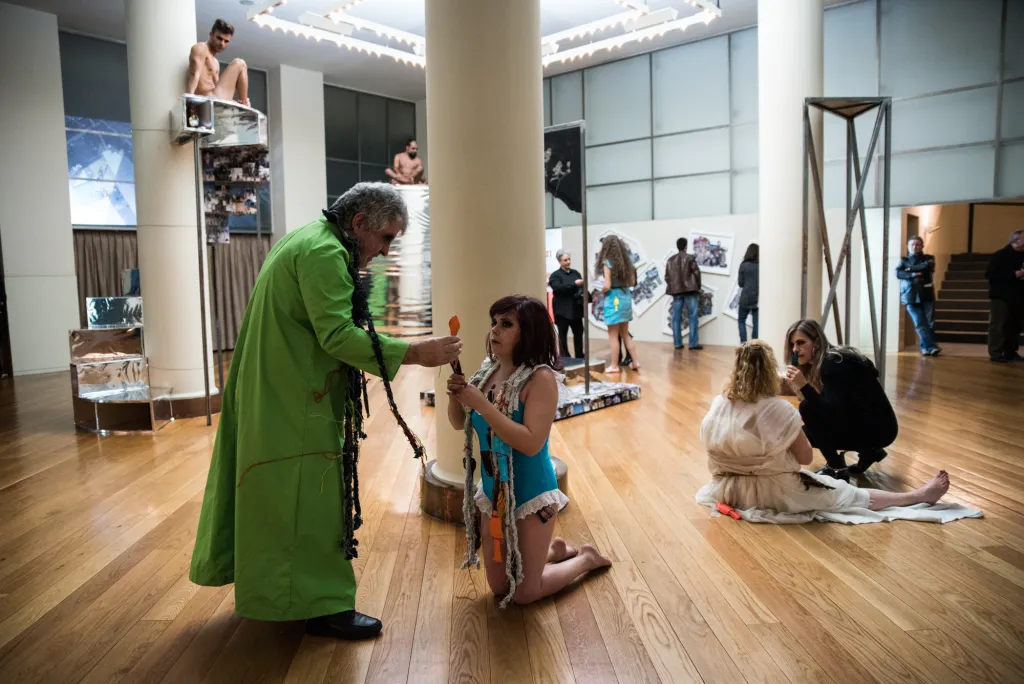

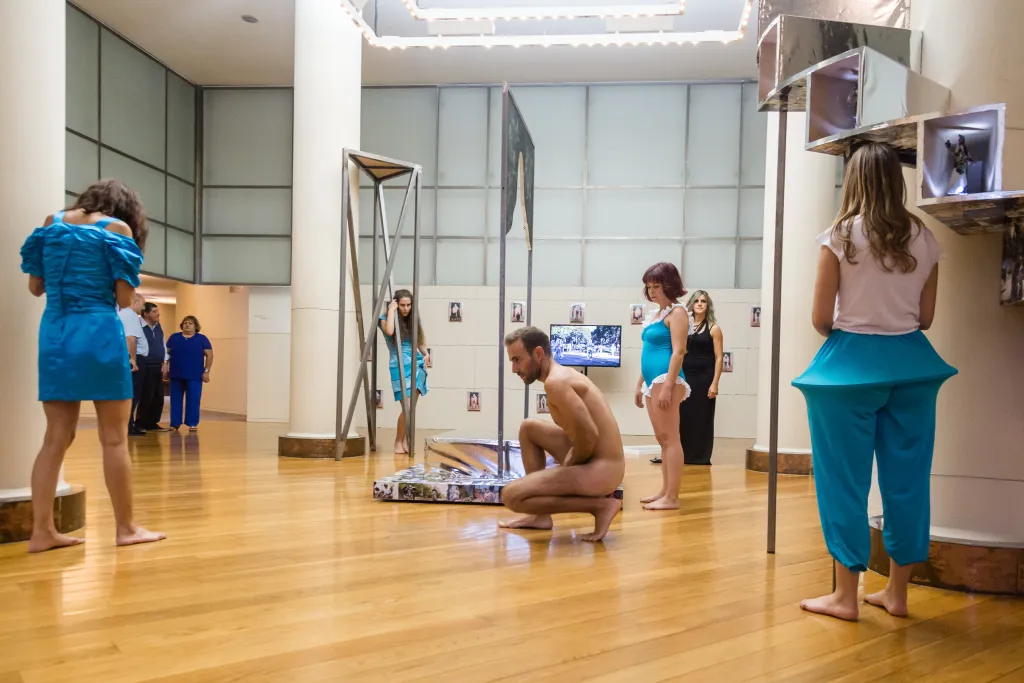
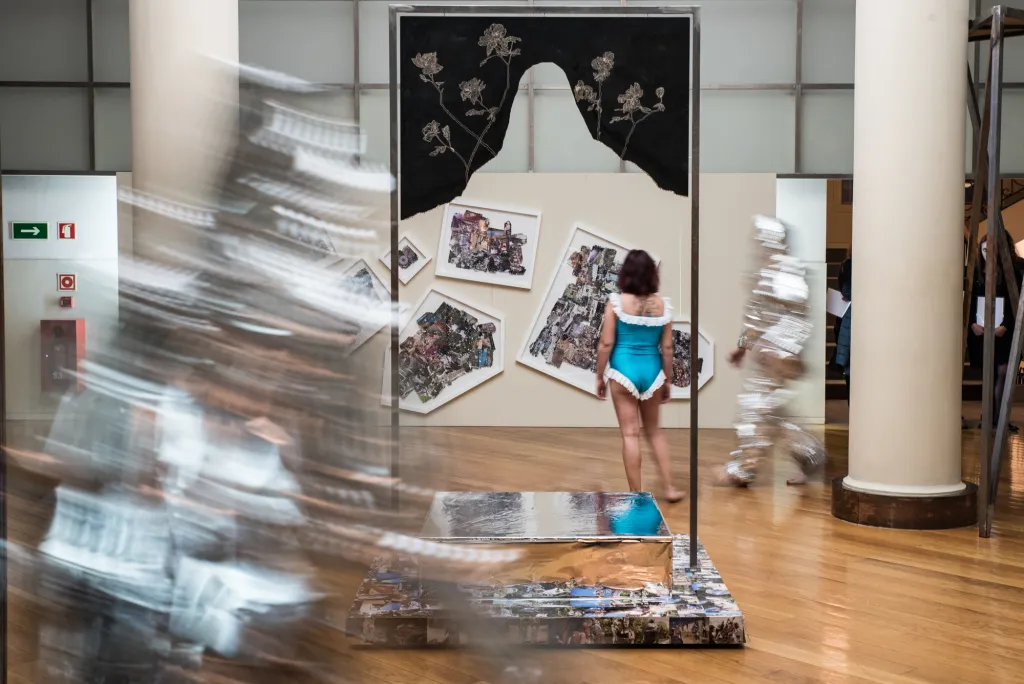



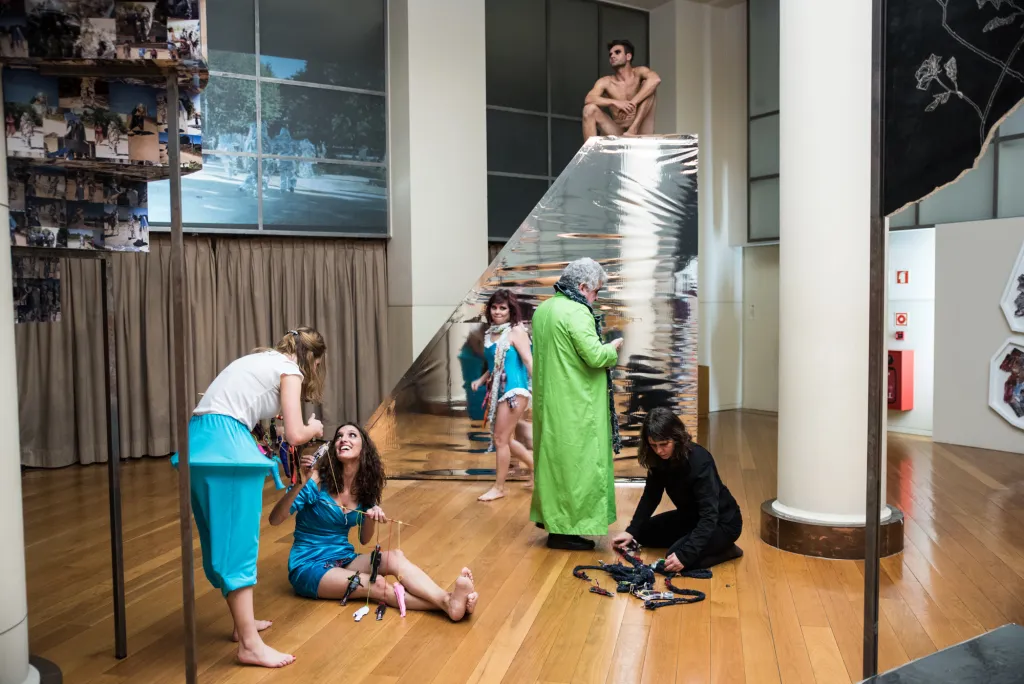
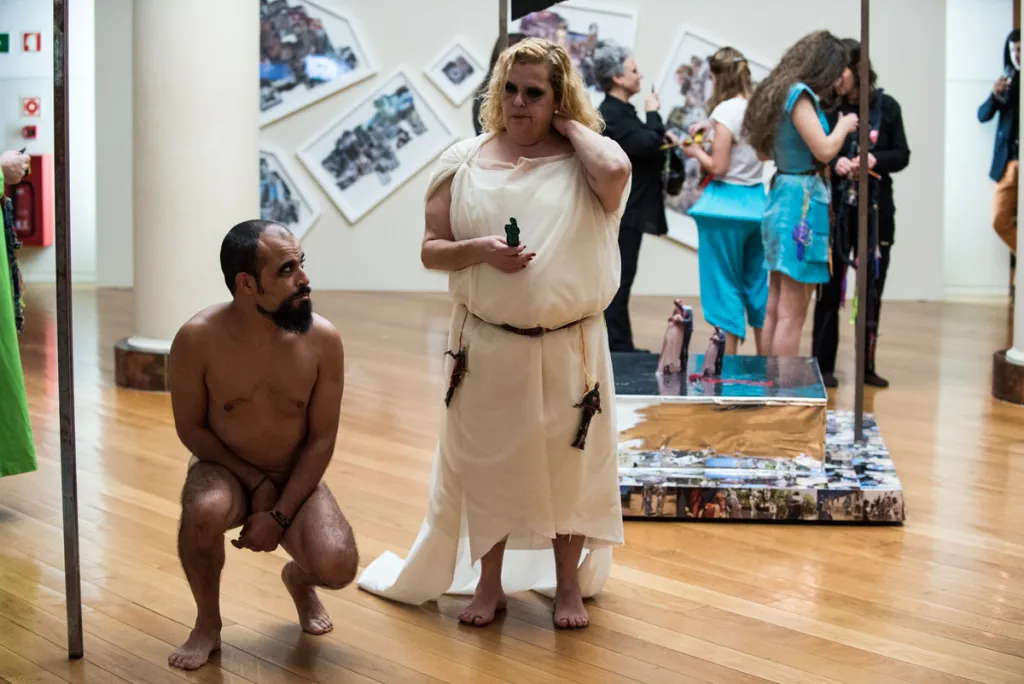
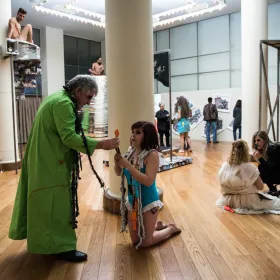
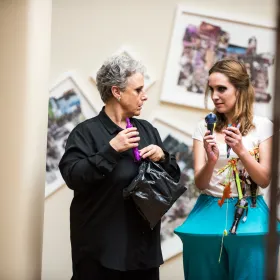
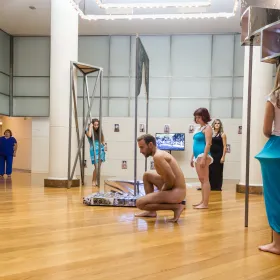




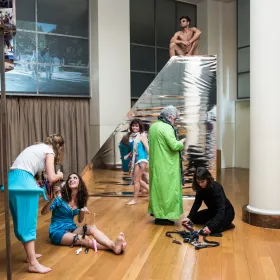
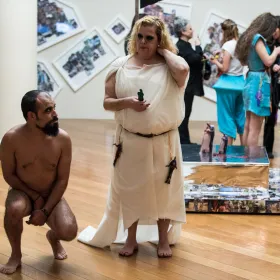
Tuti Momo generó múltiples hilos conceptuales, personajes y modos de movilización que más tarde reaparecieron en el trabajo de estudio del artista. El proyecto se presenta tanto como un sistema social duracional como una performance, donde la ficción y la realidad, la creencia y el comportamiento, se entrelazan continuamente.
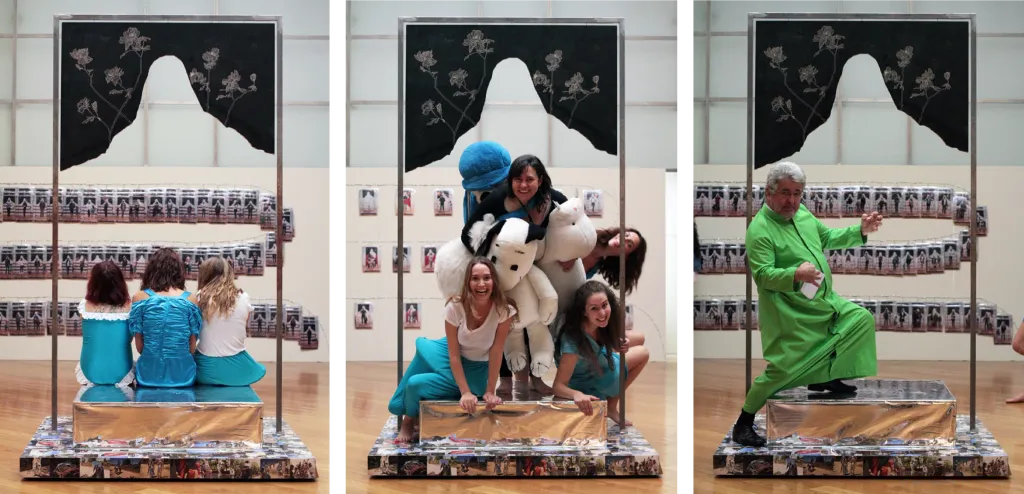
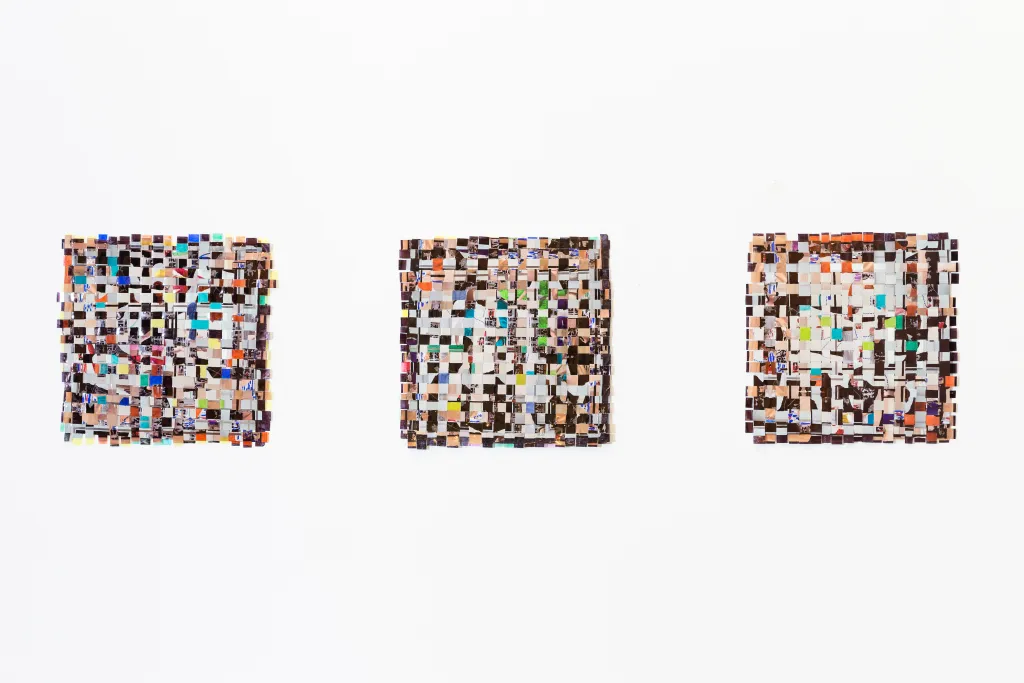
Soul Grinders es un proyecto en curso que utiliza las fotografías del altar como material base. Las fotografías laminadas son replanteadas y transformadas en una nueva forma e interpretación, sin perder su significado y simbolismo iniciales.

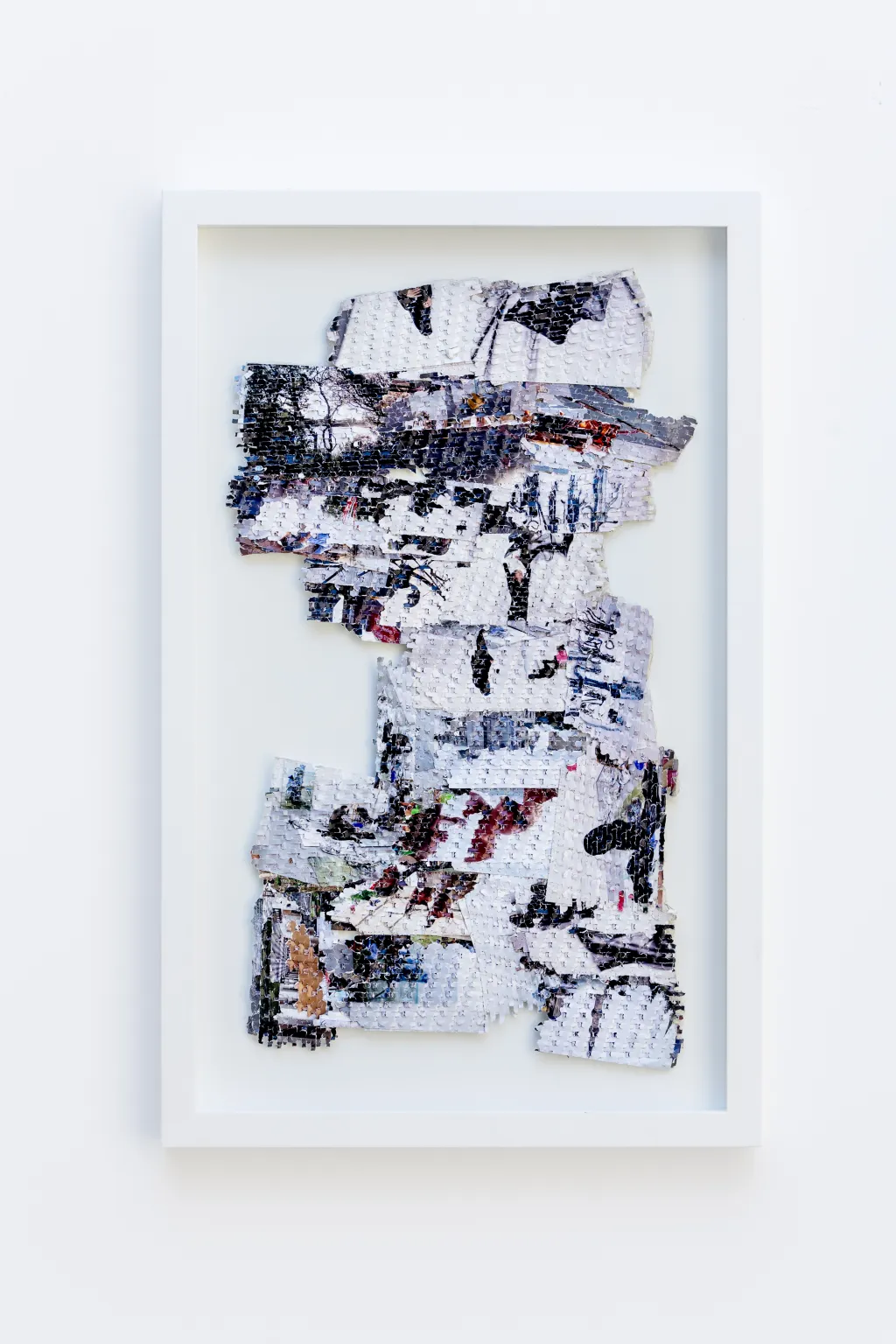








| Dirección Artística | Luísa Mota |
| Comisionado por | Teatro Municipal do Porto |
| Coproducido por | Teatro Municipal do Porto |
| Producción | Marlene Alberto |
| Asistente de Producción | Nelson Pereira |
| Documentación | Favo Studio, A Caixa Negra |
| Maquillaje | Mariana Fonseca |
| Asistentes de Vestuario | Sílvia Mota, Cláudia Queirós, João Pedro Fonseca, Abu Baker |